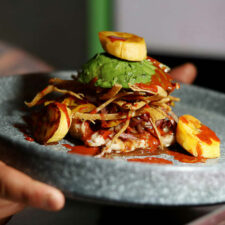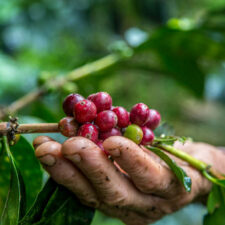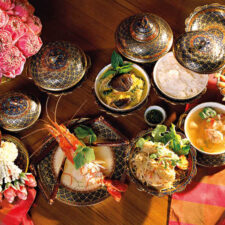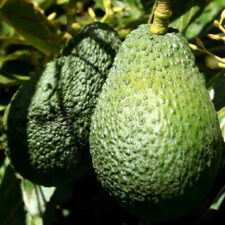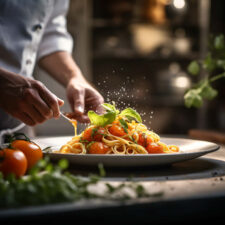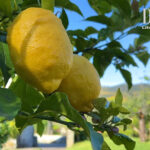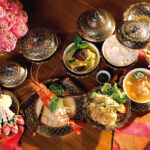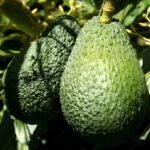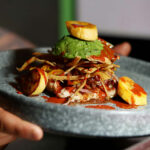 Image by freepik
Image by freepik
Moroccan cuisine is more than just a feast for the senses—it is a culinary mosaic pieced together from centuries of history, diverse cultural influences, and a deep respect for tradition. From the bustling souks of Marrakesh to the coastal city of Casablanca, Moroccan food is celebrated not only for its unique flavors but also for the stories it tells of a nation’s past.
By Jérôme Chapman
Ancient Roots and Berber Beginnings
The foundation of Moroccan cuisine can be traced back over 2,000 years to the indigenous Berbers, who are among the first known inhabitants of the region. The Berbers introduced staple ingredients such as barley, wheat, olives, dates, and figs, and their culinary practices laid the groundwork for what would become a distinctive food culture. Their method of cooking in clay tagines, slow-cooked stews often seasoned with native herbs, remains a hallmark of Moroccan cuisine today.
The Arab Influence
The arrival of the Arabs in the 7th century brought a profound transformation to Moroccan cuisine. Along with the spread of Islam, the Arabs introduced new spices, grains, and cooking techniques that enriched the local food culture. Spices like cumin, coriander, saffron, cinnamon, and ginger became essential elements in Moroccan cooking, helping to create the complex and aromatic flavors the cuisine is now famous for. Additionally, the Arab influence popularized the use of sweet and savory combinations, a characteristic still evident in dishes such as pastilla—a pastry filled with pigeon, almonds, and cinnamon, dusted with powdered sugar.
Andalusian Elegance
In the 15th century, the expulsion of Muslims and Jews from Spain during the Reconquista brought a wave of Andalusian refugees to Morocco. These migrants brought with them refined culinary traditions from the Iberian Peninsula, which further diversified Moroccan cuisine. The Andalusians introduced the use of fruits in savory dishes, as well as the development of pastries and sweets that combined honey, almonds, and rosewater, contributing to the rich dessert culture in Morocco.
 Image by freepik
Image by freepik
Sub-Saharan and Ottoman Influences
Moroccan cuisine continued to evolve with the arrival of Sub-Saharan Africans and the Ottomans. The trans-Saharan trade routes brought ingredients such as millet, sorghum, and a variety of legumes, which were integrated into the Moroccan diet. The Ottomans, although never ruling Morocco, left a lasting impression through their methods of grilling and preparing meats, which can be seen in dishes like kefta (spiced ground meat) and brochettes.
French Colonial Legacy
The 20th century brought yet another layer of influence with the French colonization of Morocco. French culinary techniques and ingredients, such as pâtisserie and café culture, blended with traditional Moroccan practices, giving rise to a fusion of flavors that is particularly evident in urban areas today. While traditional Moroccan food remained largely intact, the French influence is noticeable in the increased use of bread, dairy products, and the development of a restaurant culture that catered to both Moroccan and European tastes.
The Cuisine of Today: A Global Appeal
Today, Moroccan cuisine is celebrated worldwide for its vibrant flavors, use of fresh ingredients, and the art of combining spices. Signature dishes like couscous, tagine, and harira (a hearty soup) are enjoyed not only in Morocco but also across the globe. Moroccan cuisine has also adapted to contemporary tastes and dietary trends while staying true to its roots. The use of organic produce, innovative twists on traditional recipes, and a renewed interest in regional specialties have all contributed to its global appeal.
 Image by freepik
Image by freepik
In recent years, Moroccan food has gained recognition in the fine dining scene, with chefs across the world drawing inspiration from its rich culinary history. Meanwhile, in Morocco, the traditional ways of cooking and the communal experience of sharing a meal remain central to the culture. Food is still prepared with the same care and respect that has been passed down through generations, preserving the connection to the land and its history.
Conclusion
Moroccan cuisine is more than just food; it is a reflection of the country’s history, its people, and their ability to absorb and adapt different cultural influences while preserving their own unique identity. From the ancient Berbers to the global culinary stage, the story of Moroccan cuisine is one of continuity and change, a testament to the resilience and creativity of a nation that has always understood the power of food to bring people together.
Tags: gastronomy, Moroccan Cuisine

 Share On Facebook
Share On Facebook Tweet It
Tweet It

